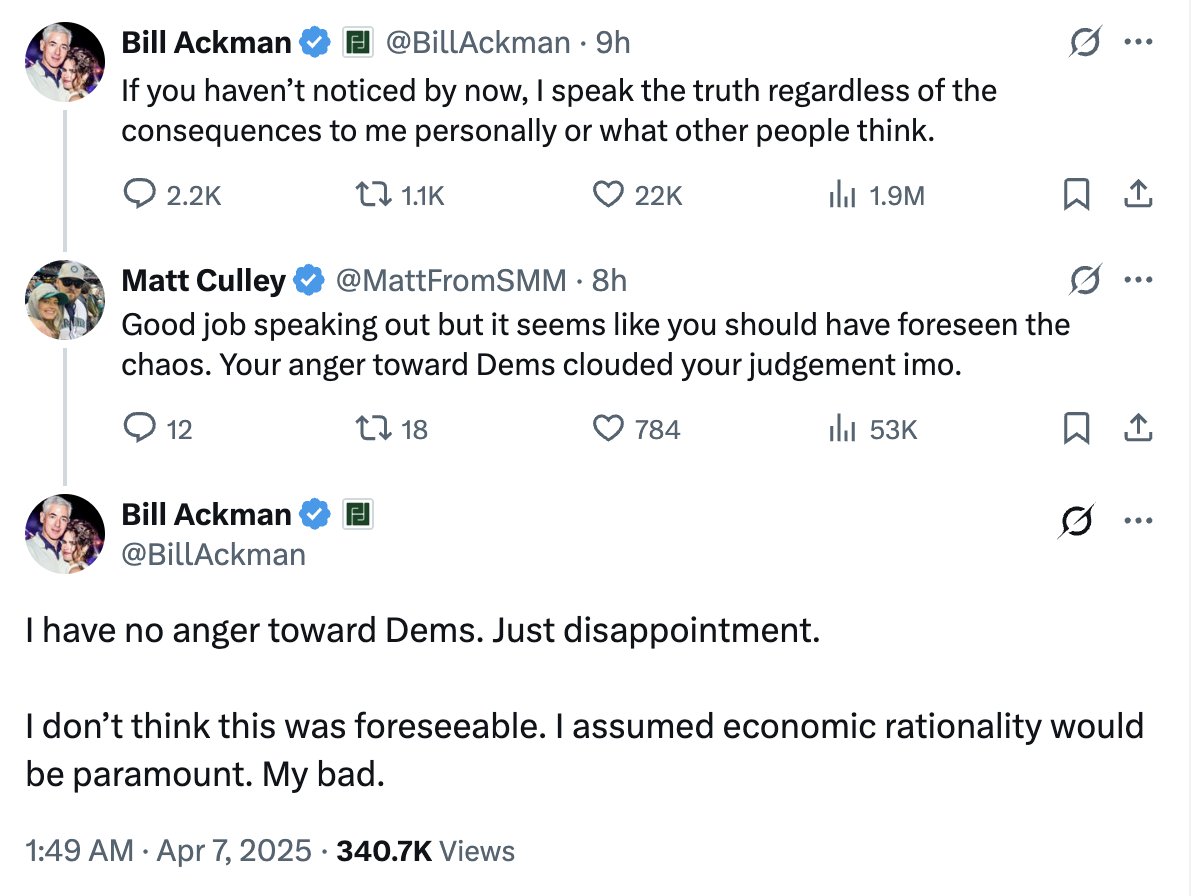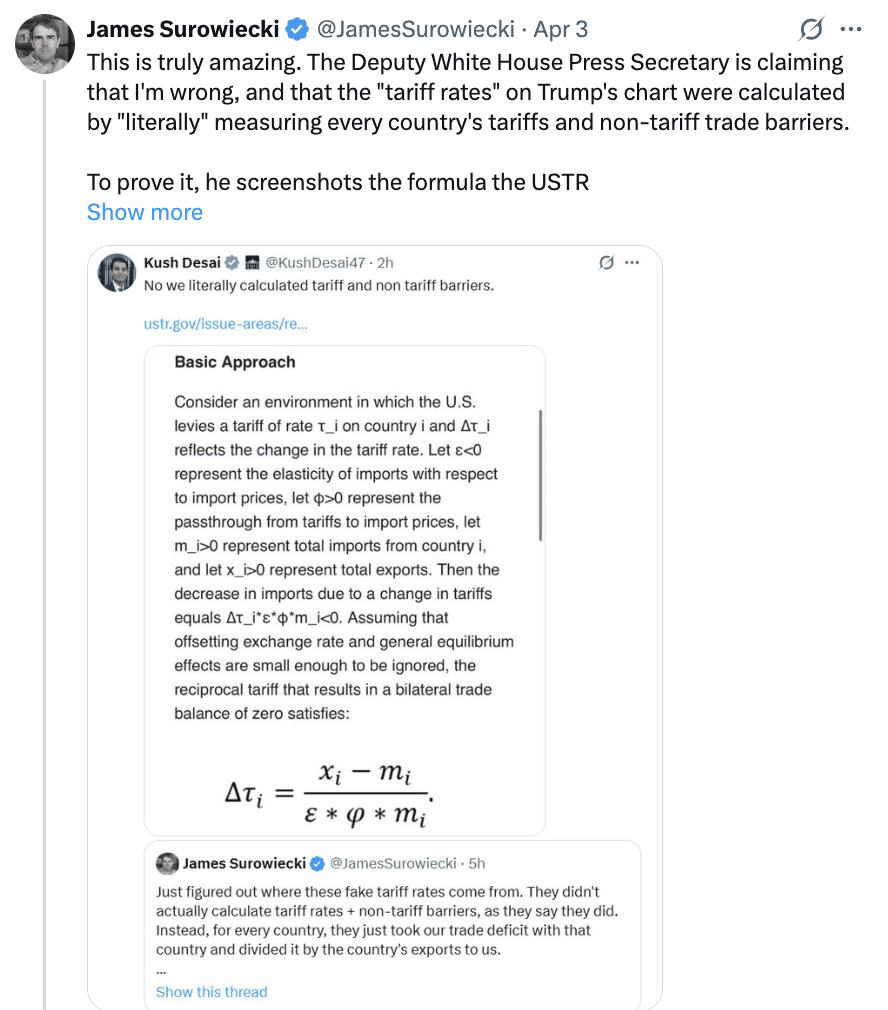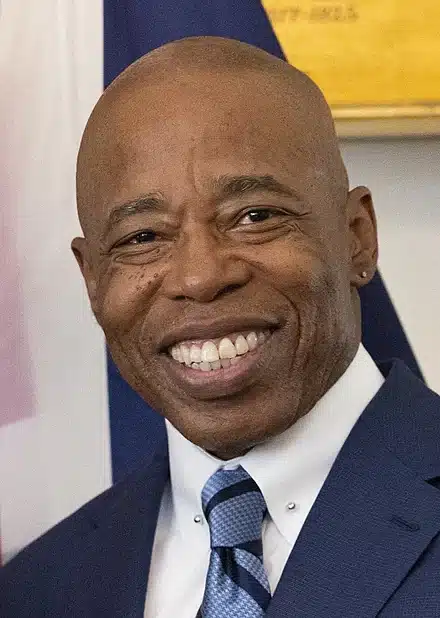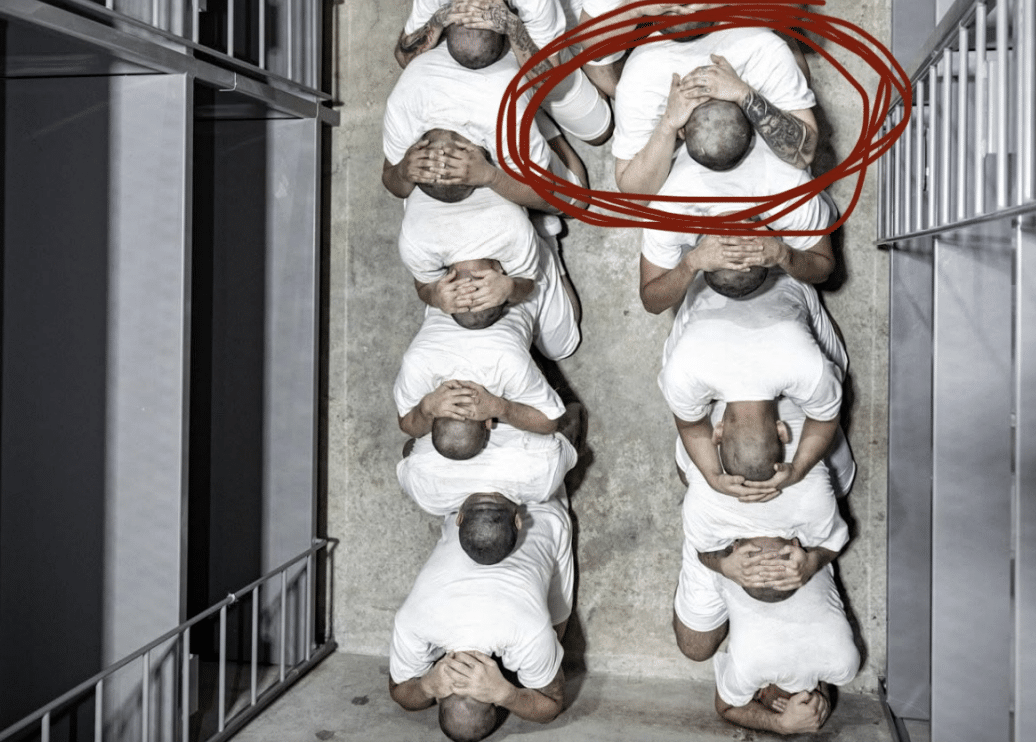As predicted, yesterday Judge Dale Ho dismissed the indictment against Eric Adams with prejudice, meaning the Trump Administration can’t charge Adams anew if he fails to do their bidding on immigration.
In his opinion explaining his decision, Ho engaged in a great deal of legal analysis, but ultimately it came down to this: even though DOJ’s explanations for the request to dismiss the indictment don’t hold up, because there’s no way to continue prosecuting Adams, Ho would end up having to dismiss the case in 70 days anyway on Speedy Trial grounds.
Thus, whatever teeth the public interest inquiry might have under Rule 48(a), denying dismissal as contrary to the public interest would be futile as a practical matter where, as here, the Motion was filed by DOJ itself. See id.; Nederlandsche, 453 F. Supp. at 463. While the Court could deny the Motion, allow seventy days to pass, and then dismiss the case on Speedy Trial Act grounds, it is hard to see what good that would accomplish.
Ho finds, for a bunch of reasons (including precisely the appearance of impropriety that DOJ claimed motivated their abandonment of the prosecution) to dismiss with prejudice, so the case is not hanging over Adams’ head. And so, having decided to dismiss with prejudice, Ho does so now rather than later (though he doesn’t say it, he does so with enough time that NYC voters can hold Adams accountable for this stinky deal).
[G]iven that seventy days from the date of this Opinion would take us uncomfortably close to the June 24, 2025 New York City mayoral primary election,60 the Court concludes that, if dismissal is inevitable, the public interest weighs in favor of its happening now rather than later.
In the process, Ho dismisses all the arguments DOJ made to justify the request.
First, he dismisses one of two reasons given for the dismissal — the appearance of impropriety — as a pretext. Ho cites his own opinion rejecting the claim when Mayor Adams’ team made it earlier.
45 To the extent that Mayor Adams argues that he has been prejudiced from extrajudicial statements about the case, see Adams Br. at 19-20, the Court has rejected two prior motions under Rule 6 raising these issues. See First Rule 6 Order; Second Rule 6 Order. Moreover, the Government itself has, until the filing of the Rule 48(a) Motion, denied that Mayor Adams has suffered any prejudice from any pretrial publicity throughout this litigation. For example, in response to Mayor Adams’s First Rule 6 Motion, the Government observed that there was no evidence that news articles about the investigation into his alleged illegal activity “put pressure on senior Justice Department officials to approve the indictment,” induced any grand jury witness to testify, or affected the grand jury’s decision to indict the Mayor. Gov’t First Sanctions Opp’n at 21-23. The Government also argued that Mayor Adams “ha[d] not established reason to believe that a future trial jury w[ould] be prejudiced by the news coverage of this case.” Id. at 23. The existence of such prejudice is typically uncovered through voir dire, which obviously has not happened here (nor will it). See United States v. Zichettello, 208 F.3d 72, 106 (2d Cir. 2000) (“When a trial court determines that media coverage has the potential for unfair prejudice, it is obligated to canvass the jury to find out if they have learned of the potentially prejudicial publicity and, if necessary, voir dire the jury to ascertain how much they know of the distracting publicity and what effect, if any, it has had on that juror’s ability to decide the case fairly.”).
But Ho also repeatedly adopts the word “pretext,” the one Hagan Scotten used to describe that excuse in his resignation letter.
As to Emil Bove’s claim that the indictment was hindering Adams’ ability to govern, Ho uses the public appearance Adams made to show that he was able to help the Administration in spite of the indictment.
The dispute here, however, seems to be more about how to interpret the facts than what the facts are. In a February 3, 2025 letter to DOJ (which they filed on the docket without prompting from the Court), Mayor Adams’s counsel asserted that the Mayor’s “independent abilities to exercise his powers have also been complicated by his indictment.” See Letter from Adams’s Counsel to DOJ. Specifically, they noted that [the Mayor’s] powers allow him to take actions such as preventing the Office of the Corporation Counsel from litigating challenges to immigration enforcement, preventing appointed city employees from taking public stances against enforcement efforts, reopening the ICE office on Rikers Island, and directing the NYPD to supply manpower to assist federal immigration agents. Id. Mayor Adams’s counsel did not explain how the Mayor’s exercise of these powers had been “complicated” by this case. Instead, they provided a list of discrete policy options that the Mayor could choose to exercise. And then, three days after DOJ issued the February 10 Decisional Memo directing SDNY to move to dismiss the Indictment (and one day before the Rule 48(a) Motion was ultimately filed), Mayor Adams decided to take one of these official acts, announcing that “he would issue an executive order allowing federal immigration authorities into the Rikers Island jail complex.” Br. of Amicus Curiae State Democracy Defenders Fund et al. at 5, ECF No. 152-2; see also ECF No. 150-4 at 152 (news article stating that “New York City Mayor Eric Adams said Thursday he will use his executive powers to allow federal immigration authorities back into the city’s sprawling Rikers Island jail complex, marking a substantial shift in the city’s sanctuary policies that prevent it from enforcing immigration law”). It seems that the Indictment was not, in fact, a barrier to that particular policy decision.
From that, Ho laid out how this creates the appearance of a quid pro quo.
The parties deny that Mayor Adams’s Rikers Island decision—which appears to be contrary to New York City Code53—reflects a quid pro quo. The record contains no contemporaneous notes of what was actually said during the January 31 meeting at DOJ,54 but counsel for Mayor Adams have represented in a letter to the Court that “we never said or suggested to anyone . . . that Mayor Adams would do X in exchange for Y, and no one said or suggested to us that they would do Y in exchange for X,” adding: “We are prepared to confirm these points under oath in sworn declarations.” See Def.’s Feb. 18, 2025 Letter at 2. The Court appreciates counsel’s willingness to supplement the record and facilitate further inquiry by the Court beyond the materials that they have affirmatively submitted without solicitation. E.g., Letter from Adams’s Counsel to DOJ.
But the Court finds that additional factual investigation—even if permissible—is unnecessary at this time. Whether anyone expressly incanted the precise words that they “would do X in exchange for Y” is not dispositive. As the Second Circuit has explained, “[a]n explicit quid pro quo . . . need not be expressly stated but may be inferred from the official’s and the payor’s words and actions.” United States v. Benjamin, 95 F.4th 60, 67 (2d Cir. 2024), cert. denied,
No. 24-142, 2024 WL 5112284 (Dec. 16, 2024); see also Benjamin, 95 F.4th at 68 (noting that while a “quid pro quo must be clear and unambiguous, there is no reason why it cannot be implied from the official’s and the payor’s words and actions.”); cf. Evans v. United States, 504 U.S. 255, 274 (1992) (Kennedy, J., concurring in part and concurring in the judgment) (“The official and the payor need not state the quid pro quo in express terms, for otherwise the law’s effect could be frustrated by knowing winks and nods.”). The Court need not and does not make any conclusive findings as to whether there was an explicit bargain here.55 It is sufficient to note that the facts, as put into the record by Mayor Adams’s legal team, do not support the notion that continuing this case will impede the Mayor’s ongoing immigration enforcement efforts—they instead suggest that dismissal of the case will facilitate future efforts by the Mayor, in alignment with the administration’s policy preferences
53 N.Y.C. Admin. Code § 9-131(h)(2) (“Federal immigration authorities shall not be permitted to maintain an office or quarters on land over which the department exercises jurisdiction, for the purpose of investigating possible violations of civil immigration law; provided, however, that the mayor may, by executive order, authorize federal immigration authorities to maintain an office or quarters on such land for purposes unrelated to the enforcement of civil immigration laws.”).
54 As noted above, the Sassoon Letter states one of her colleagues took contemporaneous notes but that those notes were confiscated at the end of the meeting. Sassoon Letter at 3 n.1. The February 13 Bove Letter in response references these events as well. See Feb. 13 Bove Letter at 3 n.3.
55 If such factual findings were necessary to the Court’s decision, additional evidentiary proceedings could then be appropriate.
The footnotes here are — as footnotes usually are — the sweet spot. Ho notes that Adams agreed not just to cooperate with Trump’s immigration enforcement, but to do so in defiance of New York City law.
And then he effectively says, if you don’t like my judgement that there is at least the appearance of a quid pro quo, we can reopen the evidentiary proceedings, in part by examining the notes that you seized from an AUSA on the case.
Judge Ho dismisses much of Bove’s effort to impugn Danielle Sassoon and Scotten by pointing out that it is irrelevant to the issue before him. DOJ said they were only relying on the two reasons to dismiss the indictment: the pretextual claim of appearance of impropriety that Ho had already rejected, and the infringement on Adams’ ability to do his work that Ho described as a quid pro quo. So they can’t, after the fact, attempt to manufacture real bias by posting communications from the prosecutors out of context.
In any case, Ho was unimpressed with Bove’s attempt to smear the prosecutors, finding it unexceptional, for example, that one of Scotten’s friends thought he would make a good judge.
Finally, the parties raise related issues in their briefs that do not appear in DOJ’s Rule 48(a) Motion. For reasons explained below, a court cannot properly grant a Rule 48(a) motion on the basis of rationales that were not raised in the motion. But even considering these additional points on the merits, the Court finds them either inapposite or unsupported by the record. For example, DOJ attaches various exhibits to its brief consisting of communications involving the former prosecution team and asserts that they show “troubling conduct” at USAO-SDNY. DOJ Br. at 1. But these communications were not public until DOJ sought to rely on them; as a matter of logic, they could not have affected “appearances” in this case. Moreover, the notion that DOJ sought dismissal because of improper conduct by the USAO-SDNY prosecution team is belied by the February 10 Decisional Memo itself, which makes clear that DOJ, in reaching its decision, “in no way call[ed] into question the integrity and efforts of the line prosecutors responsible for the case.” February 10 Decisional Memo at 1. At any rate, the Court has reviewed these communications carefully and finds that they do not show any improper motives or violations of ethics canons or the Justice Manual by the USAO-SDNY prosecution team or by former U.S. Attorney Sassoon.49
49 The Justice Department’s Principles of Federal Prosecution state, in relevant part, that “the attorney for the government should commence or recommend federal prosecution if he/she believes that the person’s conduct constitutes a federal offense, and that the admissible evidence will probably be sufficient to obtain and sustain a conviction, unless (1) the prosecution would serve no substantial federal interest; (2) the person is subject to effective prosecution in another jurisdiction; or (3) there exists an adequate non-criminal alternative to prosecution.” U.S. Dep’t of Just., Just. Manual § 9-27.220 (2023). There is nothing in the USAO-SDNY communications indicating a violation of these principles. For example, one communication indicates that a friend of AUSA Scotten believed that he would make a good federal judge. See ECF No. 175-4. The Court has reviewed this communication and finds that it shows nothing noteworthy, only that AUSA Scotten was focused on his current job “first,” rather than on any possible future opportunities. Id. Another communication—an email circulating a draft letter to the Court—refers to the Williams op-ed as a “scandal,” ECF No. 175-3, but the use of that informal shorthand in an email does not suggest that any of the individual AUSAs on the case, or the U.S. Attorney at the time, had any inappropriate motives or otherwise violated Justice Department policy or guidelines for purposes of its Rule 48(a) Motion, disclaimed any reliance on the suggestion of improper purposes in this prosecution.
Plus, there’s no way these could substantiate the appearance of impropriety claim justify dismissing the case, because Bove only made them public after the fact.
Similarly, Ho rejected Bove’s belated claims that there was something problematic with the case itself — and in a footnote, insinuates that Pam Bondi and Chad Mizelle were the ones engaged in misconduct by sharing their opinions about the strength of the case in violation of local rules.
The Rule 48(a) Motion does not allude to the possibility of other reasons for dismissal beyond the two set forth on its face. See Rule 48(a) Mot. ¶¶ 5-6. To the contrary, the Motion suggests that there are none. See id. at 3 (seeking dismissal “[b]ased on the foregoing” reasons). At the February 19 conference, DOJ confirmed that there were no other bases asserted in the Motion. See Feb. 19 Conf. Tr. at 22:18-22 (confirming that the Court’s “understanding that the motion contains no statement about the government’s views regarding the strength of the case in terms of the facts or the legal theory” is “correct”); id. at 22:18-25 (stating that “[t]here are two” bases for the Motion, neither of which concerned the merits). While counsel for DOJ stated “I do have other concerns” about the case, he disclaimed reliance on them for purposes of the Rule 48(a) Motion, explaining that the Government is “not asking the court to rely on any” reasons for dismissal beyond what is stated in the Motion itself. Id. at 22:5-13. And DOJ’s February 10 Decisional Memo is unequivocal in this regard, stating that “[t]he Justice Department has reached this conclusion without assessing the strength of the evidence or the legal theories on which the case is based, which are issues on which we defer to the U.S. Attorney’s Office at this time.” Feb. 10 Decisional Memo at 1 (emphasis added). It was only in response to this Court’s Order requesting further briefing on several questions, none of which concerned the reasons for the Motion, that DOJ raised this additional ground for dismissal.57
57 To be sure, in his February 13 letter to U.S. Attorney Sassoon, Acting DAG Bove stated that he has “many other concerns about this case,” which he described as turning on “factual and legal theories that are, at best, extremely aggressive.” Feb. 13 Letter at 7. Mayor Adams also points to a statement by the Attorney General that the case was “incredibly weak,” and has previously referenced similar statements to the same effect by the DOJ Chief of Staff. See Adams Br. at 6; Def.’s Feb. 21, 2025 Letter at 1. Assuming these concerns were well founded, they still do not contradict the February 10 Decisional Memo’s statement that DOJ reached its determination regarding dismissal without assessing the strength of the case. Separately, the Court notes that the statements referenced by Mayor Adams appear to violate Local Criminal Rule 23.1, which prohibits extrajudicial statements regarding an “opinion . . . in connection with pending or imminent criminal litigation . . . if there is a substantial likelihood that the dissemination will interfere with a fair trial or otherwise prejudice the due administration of justice.” S.D.N.Y. & E.D.N.Y. L. Crim. R. 23.1(a). The Rule provides that “[a]ny opinion as to . . . the merits of the case” “presumptively involve[s] a substantial likelihood that their public dissemination will interfere with a fair trial or otherwise prejudice the due administration of justice within the meaning of this rule.” Id. at 23.1(d)(7). [my emphasis]
I noted the problems with Mizelle and Bondi’s interventions at the time.
You can’t retcon the reasons for dismissing the case, Judge Ho says, because it would undermine the political accountability that is one purpose for judicial involvement in a Rule 48(a) motion.
None of this is meant to suggest that it would be wholly impermissible for the government to have, in addition to valid reasons that are expressly stated, other unstated reasons for dropping a prosecution. But if the reasons actually articulated in a Rule 48(a) motion itself are insufficient, and dismissal can be justified only by resort to other grounds, then the omission of those other reasons misleads the court and the public, undermining political accountability. Under such circumstances, it would flout Rule 48(a)’s requirement of leave of court to grant a motion based on belatedly offered rationales. See Ammidown, 497 F.2d at 620 (“Rule 48(a)’s requirement of judicial leave . . . contemplates exposure of the reasons for dismissal.”). Here, DOJ has affirmatively asked the Court to rely on the reasons in its Rule 48(a) Motion and has argued that these reasons are a sufficient basis for granting the Motion. See Feb. 19 Conf. Tr. at 22:5-17. The Court therefore cannot permit DOJ to rely on a post hoc rationale not stated in the Motion itself. “[W]hen so much is at stake, . . . the Government should turn square corners in dealing with the people.” Regents, 140 S. Ct. at 1909. For these reasons, the Court cannot consider DOJ’s belated merits-based arguments in adjudicating this motion. [my emphasis]
In the last pages of the opinion Ho does a number of things that may have application outside of this case. He adopts Sassoon’s point that the comparison of the Adams case to the Viktor Bout case is inapt. More importantly, the Bout case was a quid pro quo. It doesn’t help Bove claim this wasn’t a quid pro quo, it does the opposite.
First, it is odd that DOJ would analogize its decision to dismiss Mayor Adams’s indictment—which it vehemently denies is a quid pro quo—to a prisoner exchange that was explicitly a quid pro quo. Moreover, it is inapt to compare an exchange negotiated between two sovereign nations, neither of which is beholden to the laws of the other, to the Government’s decision to dismiss the indictment of an elected public official who is subject to local, state, and federal laws.
The unprecedented nature of DOJ’s rationale is particularly concerning given its view that its decision is “virtually unreviewable” because it “invocates concerns about executive power that go right to the core of Article II of the Constitution.” Feb. 19 Conf. Tr. at 23:20-24. If that is correct, DOJ’s position has rather broad implications, to put it mildly. For instance, DOJ endorsed the view that the government can apply this rationale to virtually any public official with immigration-related responsibilities—ranging from a local police commissioner to the governor of a border state—and determine that they are essentially immune from criminal liability. See id. at 32:22-34:8.
Where I’m most intrigued, Ho likens what DOJ is doing here — using the threat of prosecution to coerce states — to Congressional attempts to do the same.
Threatening federal indictment to compel compliance with federal regulatory objectives by a state or local official also raises significant federalism concerns. It is well established that “the Federal Government may not compel the States to implement, by legislation or executive action, federal regulatory programs.” Printz v. United States, 521 U.S. 898, 925 (1997). Although this prohibition has typically been applied to acts of Congress, the principles that underpin it—namely, federalism and political accountability—would similarly preclude an attempt by the federal executive branch to coerce a state or local official into implementing federal policy objectives. 58
See U.S. Dep’t of Just., Just. Manual § 9-16.110 (2020) (cautioning that “[p]lea bargains with defendants who are elected public officers can present issues of federalism . . . when they require the public officer defendant to take action that affects his or her tenure in office”). Here, the fact that, after DOJ made the decision to seek dismissal of his case, Mayor Adams decided to issue an executive order in alignment with current “federal immigration initiatives and policies,” Rule 48(a) Mot. ¶ 6, but in apparent conflict with New York City law, see N.Y.C. Admin. Code § 9-131(h)(2), is troubling to say the least. It suggests that the federal government is using the pendency of a federal indictment to override the City’s laws in favor of its own policy goals.
58 That prohibition applies even where state or local officials consent to federal compulsion, because “[t]he interests of public officials . . . may not coincide with the Constitution’s intergovernmental allocation of authority.” New York v. United States, 505 U.S. 144, 183 (1992). “The Constitution does not protect the sovereignty of States for the benefit of the States . . . as abstract political entities, or even for the benefit of the public officials governing the States.” Id.
But this is what Trump is doing left and right: Threatening states, cities, and private entities to try to get compliance with Trump’s orders. And while federalism would only apply this holding to government entities, Trump has already retaliated against New York’s other elected leaders for personal grievances. Pam Bondi has even threatened criminal prosecution in the immigration context.
So don’t be surprised if you see this opinion cited down the road.
Emil Bove attempted to force through his corrupt deal quietly, with pretextual excuses for doing so. When that failed, he turned to retaliation against at least Sassoon and Scotten. Whatever else this opinion does — no matter how unsatisfying it is that Adams will escape accountability, and it is — Ho used this opinion to lay out judicial record that Bove’s claims are bullshit.
Ho can’t stop Bove’s corrupt deal. But this opinion may forestall follow-on weaponization of this case.













